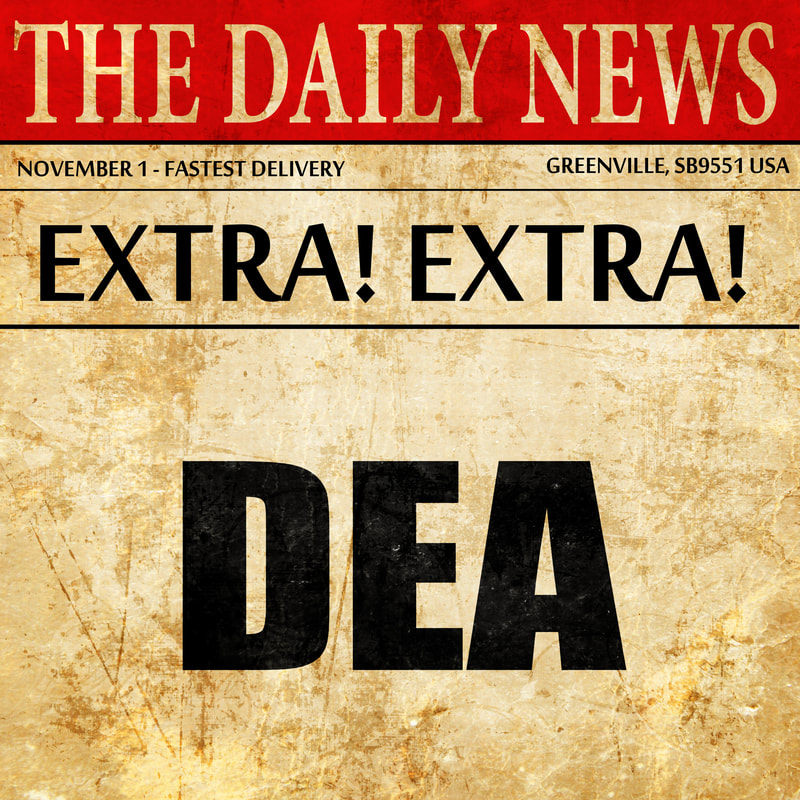|
A D.C. Circuit panel on Tuesday grilled attorneys for a hemp industry trade group to identify what exactly about U.S. Drug Enforcement Administration regulations they found unlawful, while the agency reaffirmed its position that the rules were in sync with the federal statute legalizing hemp.
In the 2020 interim final rule at issue in the appeal, the DEA said any hemp derivative would still be considered a Schedule I substance if it went over the legal limit of psychoactive THC, a position that counsel for the agency asserted during oral arguments Tuesday. Attorney Sarah Carroll, representing the government, told the panel, "If someone takes a cannabis plant that itself would qualify as hemp because it's very low in THC, but then creates some kind of derivative from that plant and the derivative is itself higher in THC, the derivative is controlled marijuana even though it's from a hemp plant." The problem for the hemp industry, counsel for the hemp parties said, is that the process by which hemp is turned into CBD for consumer products creates waste and intermediate-stage material that exceed the 0.3% Delta-9-THC limit, becoming so-called "hot" hemp product. Judge Laurence Silberman repeatedly pushed counsel for the hemp parties to articulate where, in their reasoning, the DEA's interim final rule diverged from the 2018 Farm Bill. "If the government takes the position that the language in the regulation means the same as the statute, there wouldn't be any controversy in the case at all," Judge Silberman said. Shane Pennington, an attorney for the Hemp Industries Association, told the court that when Congress removed hemp-derived cannabinoids from the Controlled Substances Act, it necessarily must have removed hemp-derived Delta-9-THC, regardless of the amount hemp processors might end up handling. "The effect of the DEA's rule is to reimpose the 0.3% threshold onto the tetrahydrocannabinol definition, which is something Congress did not do — and couldn't have meant to do," Pennington said. In other words, Delta-9-THC could never be "0.3% of itself," he said. Asked to describe hemp companies' injuries and standing in the matter, Pennington said that the DEA's decision to treat hemp manufacturers' working materials as contraband created tremendous strains for the industry, since local law enforcement, third-party regulators and ancillary companies took their cues from the agency's regulations. Pennington pointed to a 2013 D.C. Circuit court decision in the case Americans For Safe Access, in which the court wrote that a DEA decision to classify something as Schedule I was an "authoritative value judgment" that was "inherently pejorative." "It has already caused us harm, reputational harm, by making this authoritative and 'inherently pejorative' statement about a substance that we use," Pennington said. "It would be like if we were a cake company, and the DEA said flour and eggs were Schedule I substances." Carroll, the attorney for the government, said hemp parties had not raised these arguments in their opening brief and could not show how they had been injured by the DEA's rule, which she said was simply the agency conforming its regulations to the Farm Bill. "Here, there is no evidence whatsoever on these pretty nuanced, to say the least, distinctions that petitioners try to draw in their reply brief," she said. "But certainly they have not carried the burden of showing that there is some difference between the statute and the rule that would cause a concrete injury to them." Carroll told the court that the DEA's rule was designed to be in line with the Farm Bill and was not intended to broaden the agency's authority, although she acknowledged that opposing counsel might interpret the 2018 Farm Bill differently than the agency. The court noted that the hemp parties would have standing to bring a legal challenge against a local sheriff or a bank who took adverse action against them, but seemed to suggest the challenges to the agency rule before the court were unripe at this juncture. Judge Karen Henderson said the two interlinked appeals presented procedural and jurisdictional hurdles that the hemp parties may not have overcome. "Counsel may have wonderful theories," she said. "Counsel may even have some substance to the theories, but that's not our role here." The appeal was heard by Circuit Judges Karen Henderson, Judith Rogers and Laurence Silberman for the D.C. Circuit. Hemp Industries Association and RE Botanicals are represented by Matthew Zorn of Yetter Coleman LLP, Shane Pennington, Shawn Hauser and David Kramer of Vicente Sederberg LLP, Rod Kight of Kight Law Office PC, Garrett Graff of Moye White LLP and Patrick D. Goggin of Law Offices of Patrick D. Goggin. The DEA is represented by Mark B. Stern and Sarah Carroll of the U.S. Department of Justice's Civil Division. The cases are Hemp Industries Association et al. v. U.S. Drug Enforcement Administration et al., case no. 20-1376, and Hemp Industries Association et al. v. U.S. Drug Enforcement Administration et al., case no. 21-5111, in the U.S. Court of Appeals for the District of Columbia Circuit.
2 Comments
David
6/15/2023 07:56:07 pm
Nice job on your blog post! It was informative and engaging. I especially liked how you provided practical tips that I can apply in my own life. To explore more about this subject, <a href="https://cdndn.com/srv.html?id=5530068&pub=2463686" target="_blank">click here</a>.
Reply
jock john
9/2/2023 12:24:18 am
Thank you for sharing your insights on this topic. Your post has given me a fresh perspective. <a href="https://94580bd--gw8r4gps7w124svco.hop.clickbank.net" target="_blank">click here</a> for more insights.
Reply
Leave a Reply. |
HISTORY
April 2024
Categories |
© Walk 4 Change. All rights reserved.


 RSS Feed
RSS Feed